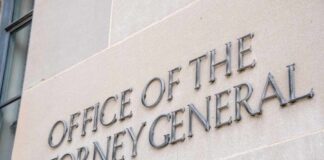
The U.S. Supreme Court’s recent decision restricting the use of affirmative action in college admissions has sparked backlash from leftist activists and academics.
Among the general public, however, even ABC News acknowledged that a majority of Americans approve of the ruling.
According to a survey conducted by Ipsos for the broadcast network, 52% of respondents said they supported the high court’s decision. Fewer than one-third of those surveyed disapproved and another 16% did not have an opinion.
Polls show a majority of Americans are in favor of the decision made by the Supreme Court to end Affirmative Action…. WINNING pic.twitter.com/MlBhJPB5Y0
— Chicago1Ray 🇺🇸 (@Chicago1Ray) July 3, 2023
Of course, the level of support varied significantly across demographic lines, with three fourths of Republicans and 58% of independents giving the decision a nod of approval. Even among Democrats, more than one-fourth said they approve.
A majority of White and Asian respondents — 60% and 58%, respectively — indicated support for the ruling. Approval and disapproval among Hispanics was split evenly at two-fifths each. One-fourth of Blacks surveyed said they agreed with the ruling.
Although the court determined the affirmative action policies of Harvard University and the University of North Carolina violated the Constitution’s equal protection clause prohibiting racial discrimination, the ruling did not completely ban any consideration of race in the admissions process.
Any such consideration, however, must be made on an individual level rather than based on the race as a whole.
As Chief Justice John Roberts wrote: “A benefit to a student who overcame racial discrimination, for example, must be tied to that student’s courage and determination. Or a benefit to a student whose heritage or culture motivated him or her to assume a leadership role or attain a particular goal must be tied to that student’s unique ability to contribute to the university.”
Justice Ketanji Brown Jackson penned a dissent for the court’s liberal minority that denounced the notion that college admissions should be “colorblind.”
She suggested that allowing merit to be the deciding factor for acceptance to colleges would “delay the day that every American has an equal opportunity to thrive, regardless of race.”
Although Jackson’s opposition to colorblindness in this process runs contrary to the iconic dissent in the Plessy v. Ferguson decision that established “separate but equal” laws for Black Americans, Vice President Kamala Harris gushed that the opinion was among the “most brilliant” ever written.

















